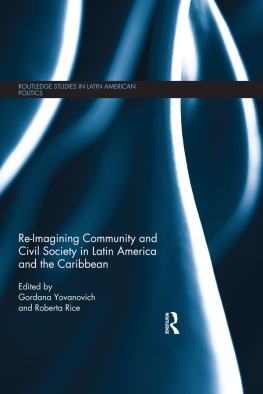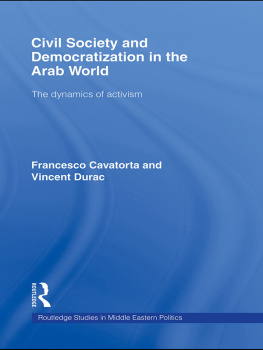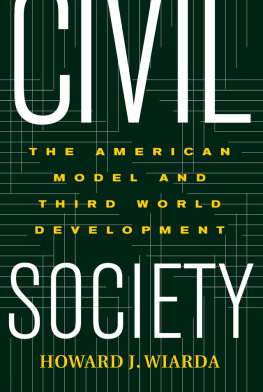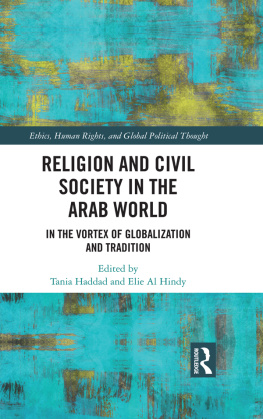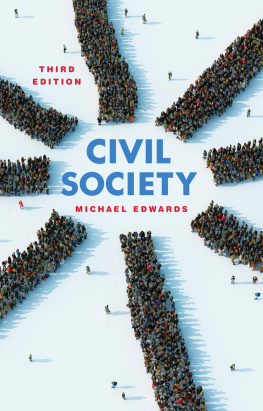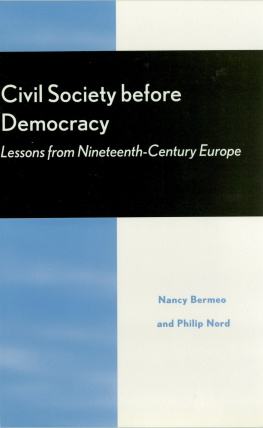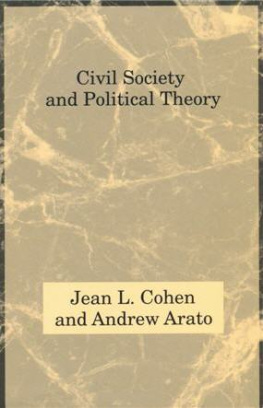An intellectually exciting and original dialogue between two frameworks for understanding the sense of belonging and social action in Latin America, with the value of an interdisciplinary approach.
Jenny Pearce, Professor of Latin American Politics, Peace Studies,
University of Bradford, England
The highly original approach that Yanovavitch and Rice take in bringing these authors together will lead readers to rethink the boundaries between the humanities and the social sciences as they consider the difference between community, as a place of solidarity and mutual support that provides a sense of belonging, and civil society, defined in the volume by Philip Oxhorn as the site in which marginalized groups manage to organize themselves to defend their collective interests in a space that lies outside the control of the state. Civil society organizations do this through activities that are sometimes supportive of but, at other times, antagonistic to both communities and to other civil society movements a contradiction explored in the volume through approaches as varied as literary criticism, ethno musicology, and participant observation of social movements.
Judith Adler Hellman, Professor of Political and Social Science,
York University, Toronto
Re-Imagining Community and Civil Society in Latin America and the Caribbean
Latin American and Caribbean communities and civil societies are undergoing a rapid process of transformation. Instead of pervasive social atomization, political apathy, and hollowed-out democracies, which have become the norm in some parts of the world, this region is witnessing an emerging collaboration between community, civil society, and government that is revitalizing democracy.
This book argues that a key explanation lies in the powerful and positive relationship between community and civil society that exists in the region. The ideas of community and civil society tend to be studied separately, as analytically distinct concepts, however this volume seeks to explore their potential to work together. A unique contribution of the work is the space for dialogue it creates between the social sciences and the humanities. Many of the studies included in the volume are based on primary fieldwork and place-based case studies. Others relate literature, music and film to important theoretical works, providing a new direction in interdisciplinary studies, and highlighting the role that the arts play in community revival and broader processes of social change.
This is a truly multidisciplinary book, bridging established notions of civil society and community through an authentically interdisciplinary approach to the topic.
Gordana Yovanovich is a professor and graduate coordinator for the Latin American and Caribbean Studies program at the University of Guelph, Canada.
Roberta Rice is an assistant professor in political science at the University of Calgary, Canada.
Routledge Studies in Latin American Politics
4 Populism in Venezuela
Ryan K. Brading
5 Civil Society and Participatory Governance
Municipal Councils and Social Housing Programs in Brazil
Maureen M. Donaghy
6 Representation and Effectiveness in Latin American Democracies
Congress, Judiciary and Civil Society
Edited by Moira B. MacKinnon and Ludovico Feoli
7 Lula, the Workers Party and the Governability Dilemma in Brazil
Hernn F. Gmez Bruera
8 Transnational Activism and National Movements in Latin America
Bridging the Divide
Edited by Eduardo Silva
9 Democracy, Revolution and Geopolitics in Latin America
Venezuela and the International Politics of Discontent
Edited by Luis Fernando Angosto-Ferrndez
10 Transforming Brazil
A History of National Development in the Postwar Era
Rafael R. Ioris
11 Pharmaceutical Autonomy and Public Health in Latin America
State, Society, and Industry in Brazils AIDS Program
Matthew Flynn
12 CivilMilitary Relations in Post-Conflict Societies
Transforming the Role of the Military in Central America
Orlando J. Prez
13 Re-Imagining Community and Civil Society in Latin America and the Caribbean
Edited by Gordana Yovanovich and Roberta Rice
14 Revolutionary Violence and the New Left
Transnational Perspectives
Edited by Alberto Martn lvarez and Eduardo Rey Tristn
First published 2017
by Routledge
711 Third Avenue, New York, NY 10017
and by Routledge
2 Park Square, Milton Park, Abingdon, Oxon OX14 4RN
Routledge is an imprint of the Taylor & Francis Group, an informa business
2017 Taylor & Francis
The right of the editors to be identified as the authors of the editorial matter, and of the authors for their individual chapters, has been asserted in accordance with sections 77 and 78 of the Copyright, Designs and Patents Act 1988.
All rights reserved. No part of this book may be reprinted or reproduced or utilized in any form or by any electronic, mechanical, or other means, now known or hereafter invented, including photocopying and recording, or in any information storage or retrieval system, without permission in writing from the publishers.
Trademark notice: Product or corporate names may be trademarks or registered trademarks, and are used only for identification and explanation without intent to infringe.
Library of Congress Cataloging-in-Publication Data
Names: Yovanovich, Gordana, 1956 | Rice, Roberta, editor.
Title: Re-imagining community and civil society in Latin America
and the Caribbean / edited by Gordana Yovanovich and Roberta
Rice.
Description: New York, NY : Routledge, 2016. | Series: Routledge
studies in Latin American politics ; 13 | Includes bibliographical
references and index.
Identifiers: LCCN 2016007463 | ISBN 9781138693371 (hbk)
Subjects: LCSH: Community developmentLatin America. | Civil
societyLatin America. | Social changeLatin America. | Community
developmentCaribbean Area. | Civil societyCaribbean Area. |
Social changeCaribbean Area. | Communities in literature. | Civil
society in literature.
Classification: LCC HN110.5.Z9 C634 2016 |
DDC 307.1/4098611dc23
LC record available at https://lccn.loc.gov/2016007463
ISBN: 978-1-138-69337-1 (hbk)
ISBN: 978-1-315-53089-5 (ebk)
Typeset in Sabon
by Wearset Ltd, Boldon, Tyne and Wear
1
Re-Imagining Community and Civil Society
Gordana Yovanovich and Roberta Rice
Following the violent period of the 1970s and 1980s, community and civil society in Latin America and the Caribbean have proven that they can be remarkably resilient and adaptive. They have taken on a wide range of forms, expressions, and activities depending on the sociopolitical context. Since the 1990s, the regions historically fragile civil societies have been bolstered externally by transnational nongovernmental organizations (NGOs) and nurtured internally by community activists as well as by left-leaning governments. To date, the theoretical discussion regarding community has taken place mainly in the context of liberal societies of the United Kingdom and the United States. North American and European scholars have spoken of the crisis of community since the late 1970s owing to massive urbanization, global migration, neighborhood violence, and accelerated advances in technology and general processes of globalization. For example, The Future of Community: Reports of a Death Greatly Exaggerated (2008) by Clements et al. suggests that communities in England were deliberately destroyed by governments and other centers of power because communities are or can be places of political resistance.

